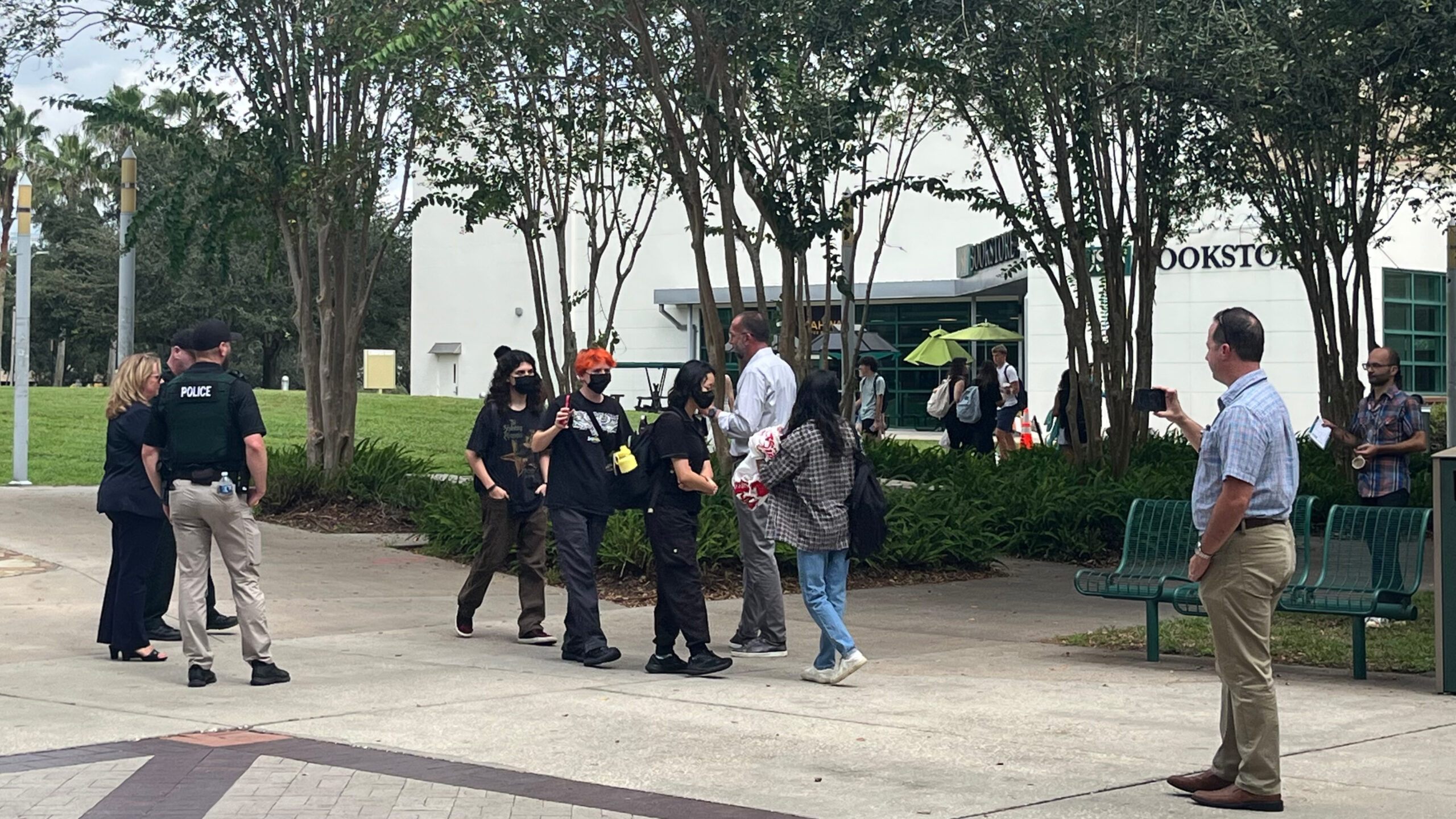USF students suspended after free speech protest: ‘I find that contradictory’

Junior sociology major Saba Indawala was temporarily suspended after her participation in an on-campus protest on Oct. 1 advocating for free speech at USF.
Indawala said she finds it “contradictory” that she and other students were suspended and “suppressed” after a rally for free speech.
Indawala and other Students for a Democratic Society (SDS) protesters are facing code of conduct charges after the October protest was shut down by administration, according to an SDS Instagram post.
The students were not allowed to host their on-campus protest because SDS is an expelled student organization and therefore is not allowed to host any event, USF spokesperson Althea Johnson said.
SDS was expelled as a student organization this summer after being involved with a series of protests that called for USF to divest from companies with financial ties to Israel.
Indawala received an email communicating her suspension on the night after the protest.
“It was really overwhelming,” she said. “And also very disappointing that the university would rather attack its students than listen to the demands of its students.”
Related: USF admin shuts down protest calling for free speech
Indawala’s suspension was modified during an informational hearing and she is only allowed to be on campus for classes.
She is unsure of what other consequences she might face as she waits for a formal hearing to be scheduled for this month.
Indawala was charged with one disruptive conduct and two failure to comply charges.
The protest, organized by Students for a Democratic Society (SDS), called for free speech on campus in light of Policy 6-028, which “establishes parameters for the use of open space.”
Indawala, who has been a member of SDS since fall 2023, said she attended the protest because the message spoke to her. The policy has been “killing student life on campus,” she said.
“Every time I see a student org tabling, they’re being shut down,” she said. “Everything needs a permit.”
According to the policy, students are allowed to organize, protest and host demonstrations on campus in public spaces without pre-approval. However, anything that involves an additional structure, like a table or tent, or uses amplified sound, like a megaphone, needs approval before the event.
However, since expelled student organizations are not allowed to organize on campus, they cannot get this approval.
Related: USF clubs can’t sell homemade foods on campus anymore
Johnson said even though USF “values free speech and the right for individuals and groups to gather and express themselves,” there are “consequences” for those who don’t follow USF’s policies.
Indawala has a hold on her records, which prevents her from registering for classes for the spring semester, she said.
Indawala said students “have the right to free speech on campus” and “should be allowed” to put up flyers and have events “whenever they want to.”
“The whole rally was around free speech,” she said. “And yet, myself and other students ended up being suspended off campus and suppressed, if anything.”
Senior psychology major Vicky Tong said she felt “sick to her stomach” when she saw the conduct charges against her.
Tong was charged with two counts of failure to comply and one for violating university policy.
“It was just a very infuriating situation that the USF administration once again was forcing students through the code of conduct process,” Tong said.
Tong’s charges were dropped at the beginning of November after an informational hearing, she said. Tong said she was offered a resolution agreement to write a 700-word “plan of success.”
Tong was among three students who went through code of conduct informational hearings. During one hearing, student protester Kynsey Dyal requested an accessibility aid and was “forced” to choose between the aid or an advisor, according to SDS on Instagram.
Johnson said any student going through the conduct process may request reasonable accommodations. However, the student must be registered with the USF Student Accessibility Services and the request must be made at least three days before a hearing, she said.
Tong said the students were told that if they were found violating the code of conduct again, “specifically in association with SDS,” there would be harsher punishment such as suspension or expulsion.







